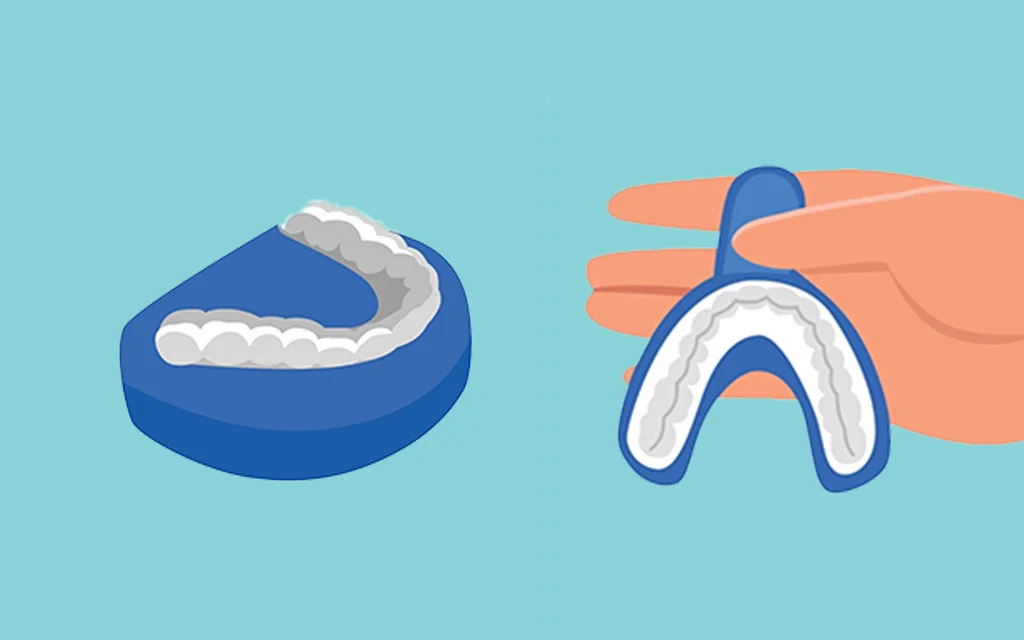Is Your Night Guard Doing Its Job? Signs You Might Need a New One
If you suffer from bruxism (teeth grinding) or TMJ disorder (temporomandibular joint dysfunction), your night guard is one of the most important tools for protecting your smile and relieving jaw pain. But like all dental appliances, night guards don’t last forever — and when they stop working properly, your teeth and jaw may suffer.
At Brighter Smiles Dapto Dental, we often see patients who are unknowingly wearing worn-out or poorly fitting guards, not realising that these issues can make their symptoms worse. In this post, we’ll help you understand the signs that your night guard might need replacing — and why regular check-ins are essential for protecting your oral health.

Why Night Guards Matter
A night guard, also known as an occlusal splint or bite splint, is a custom-fitted dental appliance worn while you sleep. It acts as a cushion between your upper and lower teeth, preventing them from grinding against each other.
For people with:
- Bruxism, it helps protect the enamel from excessive wear.
- TMJ disorders, it can ease pressure on the jaw joint and reduce muscle tension.
But even the best night guard won’t last forever. Over time, the constant pressure and movement can cause wear and tear, reducing its effectiveness.
Signs Your Night Guard Isn’t Doing Its Job
Here are some clear indicators that it might be time to check in with your dentist about your current night guard:
1. Visible Wear and Tear
If your night guard looks cracked, thinned out, or has visible bite marks, it may no longer be providing adequate protection. A worn-out guard can lose its shape and stop absorbing the pressure of grinding.
– Check regularly for dents, tears, or flattening of the material.
2. Increased Jaw Pain or Headaches
One of the main purposes of a night guard is to relieve symptoms. If you’re waking up with more jaw tension, headaches, or discomfort in your neck and shoulders, your guard might not be working correctly.
– New or worsening symptoms are a red flag that your device needs professional assessment.
3. Your Bite Feels Off
Have you noticed that your teeth aren’t aligning the way they used to? If your bite feels strange or your jaw clicks more than usual, your guard may have warped over time — or no longer fits your current bite due to dental changes.
– Even subtle shifts in your teeth can impact the fit of your guard.
4. Changes in Your Dental Health
Dental restorations like crowns, veneers, or fillings can alter your bite — and that means your old night guard may no longer fit properly.
– If you’ve had dental work since your last night guard fitting, it’s worth getting your appliance re-evaluated.
5. Unpleasant Odours or Discolouration
Even with good hygiene, night guards can accumulate bacteria, especially if not cleaned properly. Over time, this can lead to an unpleasant smell, yellowing, or mould buildup — all signs that you may need a new device.
– Your mouth should feel clean after wearing your guard — not the opposite.
6. It Feels Loose or Uncomfortable
A custom-fitted night guard should sit snugly and comfortably. If it shifts around, falls out during sleep, or causes irritation, it’s not doing its job.
– Comfort is key. If you’re constantly adjusting your guard or dreading putting it in, it’s time for a replacement.
What Can Happen if You Ignore the Signs?
Wearing a damaged or ineffective night guard can actually make things worse. You might end up with:
- Chipped or cracked teeth
- Worsening TMJ symptoms
- Jaw misalignment
- Poor quality sleep
- Increased dental sensitivity
Ignoring the signs can lead to costly restorative work in the long run — and unnecessary discomfort in the short term.
How Often Should You Replace Your Night Guard?
There’s no one-size-fits-all answer, but here’s a general guideline:
Type of Night Guard Average Lifespan
- | Soft Guard (over-the-counter) | 6 months – 1 year
- | Dual Laminate Guard | 1–2 years
- | Hard Acrylic Guard (custom) | 3–5 years
At Brighter Smiles Dapto Dental, we recommend bringing your night guard in during your regular dental check-ups so we can assess its condition, fit, and hygiene. This helps us catch issues early and ensure you’re always getting the protection you need.

Care Tips to Make Your Night Guard Last Longer
While replacements are inevitable, good care can extend the life of your night guard:
- Rinse after each use with lukewarm water.
Brush gently with a soft toothbrush .
- Soak weekly in a non-alcoholic, denture-safe cleanser. Mouthguard cleaning tablets are available.
- Store in a ventilated case, not airtight containers.
- Keep away from pets – dogs especially love to chew them!
When to See Us at Brighter Smiles Dapto Dental
If you’re experiencing any of the signs above, we recommend booking an appointment to:
Check the condition of your current night guard
Assess your bite and jaw health
Discuss whether a new guard — or a different type — might be better suited to your needs
We offer custom-made night guards designed specifically for your bite and symptoms. Our team can also guide you on the best type based on your grinding habits, severity, and comfort preferences.
Sleep Better. Smile Brighter.
A well-fitted night guard should relieve discomfort, not cause it. If you’re not sure whether yours is still doing the job, don’t leave it to guesswork. We’re here to help.
Book your appointment at Brighter Smiles Dapto Dental today, and let’s make sure your smile is protected night after night.
🌐 Book online at brightersmilesdaptodental.com.au
📍 Visit us at Brighter Smiles Dapto Dental, 54, Baan Baan St, Dapto, NSW2530.
April 2025.

